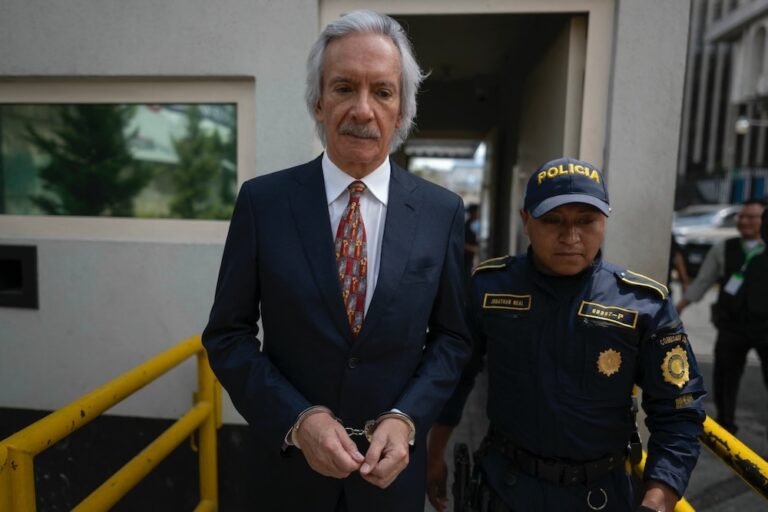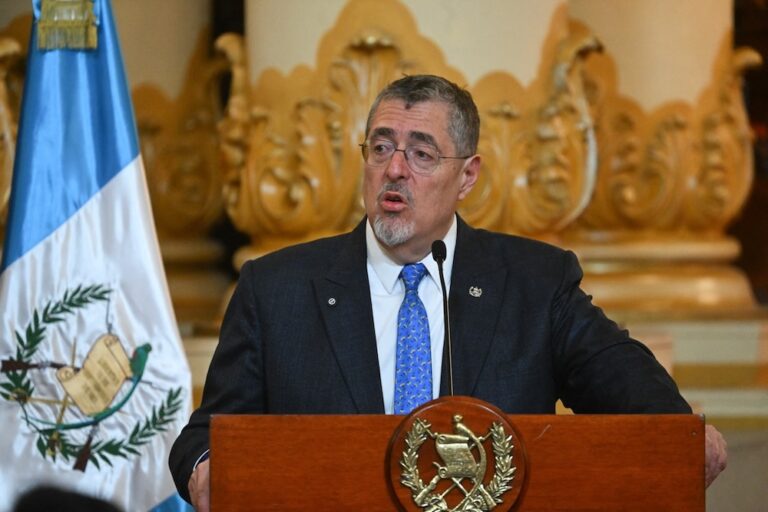(AMARC/IFEX) – On 6 March 2007, AMARC-Latin America and the Caribbean (AMARC-ALC) presented a complaint before the Inter-American Commission on Human Rights (IACHR) against the government of Guatemala for what it considers “a serious and uninformed decision” that threatens freedom of expression, indigenous cultural rights, and peasant communities throughout the country. AMARC also believes that […]
(AMARC/IFEX) – On 6 March 2007, AMARC-Latin America and the Caribbean (AMARC-ALC) presented a complaint before the Inter-American Commission on Human Rights (IACHR) against the government of Guatemala for what it considers “a serious and uninformed decision” that threatens freedom of expression, indigenous cultural rights, and peasant communities throughout the country. AMARC also believes that the decision “frustrates and undermines the efforts made through the Dialogue Roundtable supported by the Office of the Special Rapporteur for Freedom of Expression and the Inter-American Commission On Human Rights (IACHR)” aimed at modifying national legislation so that it would recognise the rights of community radio stations.
On 8 February, the government of Guatemala approved a decree entitled “policy to resolve the issue of illegal radio stations” (Número 43-2007, Política para resolver la Problemática de las Radios Ilegales), which reinforces and deepens the policy of closing radio stations and imprisoning operators of community radio stations that have not yet been licenced due to the lack of relevant legal provisions.
This decision was taken without due regard for its likely consequences and without taking into account the opinions of those who participated in the Dialogue Roundtable that was initiated in 2005 by the then-special rapporteur for freedom of expression, Dr. Eduardo Bertoni. It was taken without even informing the Presidential Commission on Human Rights (Comisión Presidencial para los Derechos Humanos, COPREDEH), which was overseeing the dialogue process.
Limiting access to radio frequencies is a form of indirect censorship. Community, indigenous and human rights organizations have repeatedly denounced the government’s misuse of licensing regulations in order to bar the access of specific social sectors to their own television and radio stations while favouring the concentration of control of the media by groups with stronger affinities with the government.
AMARC has submitted to the Office of the Special Rapporteur a report detailing this history, and has asked the Office to “proceed with all due promptness and effort to re-orient the government toward the process of dialogue, in order to avoid the government’s implementation of the repressive policy it has now approved”.
AMARC believes that the approved policy, which was supported by the Telecommunications Superintendent’s Office (Superintendencia de Telecomunicaciones, SIT) and the corporate media players who comprise the Radiobroadcasting Chamber (Cámara de Radiodifusión), “will cause even more problems, due to the strong repression it portends, in threatening radio staff with imprisonment, and due to the fact that its proposed measures were not agreed upon by all stakeholders, nor do they address the root issues.”
With the signing of the 1996 Peace Accords, the Guatemalan state promised to reform legislation so as to allow access to media by the Mayan, Xinca and Garifuna peoples. Subsequent recommendations by the Office of the Special Rapporteur urged the state to modify the legal framework for broadcasting to ensure equal access.
A Dialogue Roundtable on the subject, involving a variety of stakeholders including members of the private and public sector, was initiated in June 2005 as a result of meetings held in Washington, DC, in March of that same year.
In February 2007, the Dialogue Roundtable arrived at a consensus regarding most aspects of a bill on community radio stations; the bill addressed the Roundtable’s objectives and was to be presented to the Congress as soon as possible. AMARC and all the other social organisations participating in the Dialogue Roundtable believe that, with its current decision, the government of Guatemala has completely disregarded the entire dialogue process, and these groups have issued an open letter condemning the government’s action and demanding it return to the path of dialogue.


